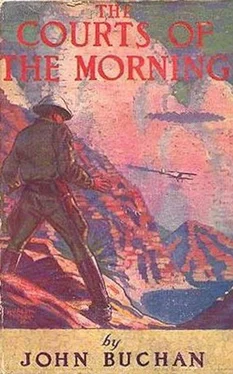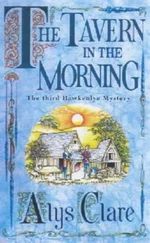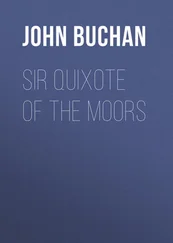John Buchan - The Courts of the Morning
Здесь есть возможность читать онлайн «John Buchan - The Courts of the Morning» — ознакомительный отрывок электронной книги совершенно бесплатно, а после прочтения отрывка купить полную версию. В некоторых случаях можно слушать аудио, скачать через торрент в формате fb2 и присутствует краткое содержание. Жанр: unrecognised, на английском языке. Описание произведения, (предисловие) а так же отзывы посетителей доступны на портале библиотеки ЛибКат.
- Название:The Courts of the Morning
- Автор:
- Жанр:
- Год:неизвестен
- ISBN:нет данных
- Рейтинг книги:3 / 5. Голосов: 1
-
Избранное:Добавить в избранное
- Отзывы:
-
Ваша оценка:
- 60
- 1
- 2
- 3
- 4
- 5
The Courts of the Morning: краткое содержание, описание и аннотация
Предлагаем к чтению аннотацию, описание, краткое содержание или предисловие (зависит от того, что написал сам автор книги «The Courts of the Morning»). Если вы не нашли необходимую информацию о книге — напишите в комментариях, мы постараемся отыскать её.
The Courts of the Morning — читать онлайн ознакомительный отрывок
Ниже представлен текст книги, разбитый по страницам. Система сохранения места последней прочитанной страницы, позволяет с удобством читать онлайн бесплатно книгу «The Courts of the Morning», без необходимости каждый раз заново искать на чём Вы остановились. Поставьте закладку, и сможете в любой момент перейти на страницу, на которой закончили чтение.
Интервал:
Закладка:
The Vice-Consul, whose name was Alejandro Gedd, was a small man with a neat, dark, clean-shaven face, and high cheek-bones from which his critics deduced Indian blood. As a matter of fact they came from another ancestry. His grandfather, Alexander Geddes, had come out in his youth from Dundee as a clerk in a merchant's house, had prospered, married a pretty Olifera, begotten a son, and founded a bank which rose in the silver boom to fortune. That son had married a lady of pure Castilian descent, whose beauty was not equal to her lineage, so the grandson of old Geddes had missed both the vigour of the Scot and the suave comeliness of the Olifera. Don Alejandro was an insignificant little man, and he was growing fat. The father had sold his interest in the bank at a high figure, and had thereafter dabbled in politics and horse-breeding; the son, at his death, had promptly got rid of the stud and left the government of his country to get on without him. He had been sent to an English school, and later to the Sorbonne, and had emerged from his education a dilettante and a cosmopolitan. He professed a stout Olifa patriotism, but his private sentiment was for England, and in confidential moments he would speak of his life as exile. Already he had asked Archie a dozen questions about common friends, and had dwelt like an epicure on the recollections of his last visit--the Park on a May morning, an English garden in midsummer, the Solent in August, the October colouring of Scottish hills. His dinner-jacket had been made in the vicinity of Hanover Square, and he hoped that his black stock and his black-ribboned eyeglass were, if not English, at any rate European.
Archie was looking at the windows. "Out there is the Pacific," he said, "nothing nearer you than China. What is it like the other way?"
"The coastal plain for a hundred miles. Then the foothills and the valleys where the wine is made. A very pretty light claret, I assure you. Then, for many hundreds of miles, the great mountains."
"Have you travelled there much?"
Don Alejandro shook his head. "I do not travel in this land. What is there to see? In the mountains there are nothing but Indians and wild animals and bleak forests and snow. I am content with this city, where, as I have said, there is civilisation."
"A man I met on the boat told me about a place called the Gran Seco. He said it was bound to be soon the greatest copper area in the world."
Don Alejandro laughed. "That ill-favoured spot becomes famous. Five years ago it was scarcely known. To-day many strangers ask me about it. The name is Indian-Spanish. You must understand that a hundred miles north of this city the coastal plain ends, and the Cordilleras swing round so that there is no room between them and the ocean. But at the curve the mountains, though high, are not the great peaks. These are far to the east, and you have for a big space a kind of tableland. That is what we call the Gran Seco--the Great Thirst--for it is mostly waterless and desert. But it is very rich in minerals. For long we have known that, and before the War there were many companies at work there. Now there is one great company, in which our Government has a share, and from which Olifa derives much of its wealth. The capital employed is mostly foreign--no, not American--European, but of what country I do not know. The labourers are the people of the hills, and the managers are Europeans of many nationalities. They pass through this city going and coming--through this hotel often--perhaps we may see some of them to-night. They are strange folk who do not mix freely with us of Olifa. I am told they are growing as wealthy as Rockefeller. There are no English among them, I think--Slavs mostly, with some Italians and now and then a German, so I do not come across them in the way of business, and it would appear that they have no time for pleasure.... May I ask, Sir Archibald, for what purpose especially you honour us with a visit? I want to know how best I can serve you."
Archie wrinkled his brow. "You are very kind, Don Alejandro. The fact is we're here mainly for the fun of it. This is a sort of belated honeymoon trip. Also, I'd like to know something about the politics of Olifa and South America generally. You see, I'm a Member of Parliament, and I've an idea that this part of the globe may soon become rather important. I have brought several introductions."
Don Alejandro waved his hand deprecatingly.
"That will be readily arranged. Your Minister is on leave, and the Embassy has left you in my hands. Without doubt you will be received by our President. I myself will take you to our Minister for External Affairs, who is my second cousin. Our Minister of Finance will expound to you our extravagant prosperity. But of politics in the old sense you will find little. We are too rich and too busy. When we were poor we talked government all the day. And we had revolutions--dictatorships tempered by revolutions. My father more than once saved his neck by the good blood of his racing stable. But now we are very tame and virtuous. Our Government is rich enough to be enlightened, and our people, being also rich, do not trouble their heads about theories. Even the peons on the estancias and the vaqueros in the hills are content. Olifa is--how do you say?--a plutocratic democracy--a liberal plutocracy. Once it was a battered little packet-boat, now it is a great liner careless of weather and tides. It has no problems, this fortunate country."
"Jolly place for a holiday," said Archie. "Well, we mean to have a good look round. What do you advise?"
Don Alejandro became lyrical. "You can go south for eight hundred miles in an ever-widening plain. There you will see such orange groves as the world cannot match, and nearer the mountains the savannahs which are the richest pasture on earth. I will write to my cousin at Veiro, and he will entertain you at the stud farm which was once my father's. It will not be like an English Sunday afternoon in the country, where a fat stud groom with a bunch of carrots takes the guests round the stables. It is a wild place between the knees of the hills, but there is some pretty horseflesh there."
"Can I get up into the mountains?" Archie put in, but Don Alejandro was not to be interrupted.
"You must visit our great cities, for Olifa, though the capital, is not the largest. Cardanio has now four to five hundred thousand souls. That is the port from which our fruits and hides and frozen beef are shipped. And there is Alcorta in the hinterland, which is our little Birmingham. But madame will weary of these commercial glories. She will be happier, I think, among the horses at Veiro, or in some pretty hacienda...."
Janet Roylance had paid little heed to the conversation, being engaged in studying the slowly increasing number of diners.
"I would like to go into the mountains," she said. "I saw them from far out at sea, and they looked like the battlements of Paradise."
"A very savage Paradise you would find it, Lady Roylance. None of your green Swiss valleys with snow-peaks rising from meadows. It is all dusty and bare and cruel. Take my advice and be content with our sunny estancias----"
"Look at these chaps, Janet," said Archie suddenly. "There's a queer class of lad for you!"
Don Alejandro fixed his eyeglass and regarded four men who had taken their seats at a table a little way off. It was a curious quartet. There was a tall man with hair so pale that at first sight he looked like an albino; he had a bony face and skin like old parchment, but from his bearing it was clear that he was still young. Two were small and dark and Jewish, and the fourth was a short burly fellow, with the prognathous jaw of a negro but the luminous eyes of a Latin. All were dressed in well-cut evening clothes, and each wore in his buttonhole a yellow flower--to Archie it looked like a carnation. The notable things about them were their extreme pallor and their quiet. They sat almost motionless, speaking very little and showing that they were alive by only the tiniest gestures. A waiter brought them caviare, and poured champagne into their glasses, and as they moved their arms to eat and drink they had an odd suggestion of automata.
Читать дальшеИнтервал:
Закладка:
Похожие книги на «The Courts of the Morning»
Представляем Вашему вниманию похожие книги на «The Courts of the Morning» списком для выбора. Мы отобрали схожую по названию и смыслу литературу в надежде предоставить читателям больше вариантов отыскать новые, интересные, ещё непрочитанные произведения.
Обсуждение, отзывы о книге «The Courts of the Morning» и просто собственные мнения читателей. Оставьте ваши комментарии, напишите, что Вы думаете о произведении, его смысле или главных героях. Укажите что конкретно понравилось, а что нет, и почему Вы так считаете.












